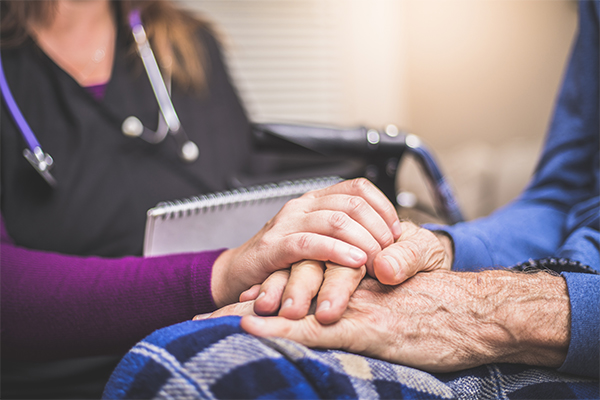
August 3, 2018
They’re common concerns in older years: fatigue, sleeping problems, lack of appetite. And sometimes, they’re written off as just that. Yet for as many as 8 million elders over age 65, these symptoms are suggestive of something a lot more than normal aging – they’re signs of mental illness. And just a small percentage are receiving the available treatment which could dramatically enhance their overall well-being.
Mental illness in seniors is often unnoticed, for a variety of reasons. For some, there’s a stigma attached to admitting to and trying to find help for mental and emotional concerns. For other people, the assumption is that the common signs and symptoms of mental illness and aging go hand in hand and should simply be accepted. And in some cases, the signs of mental illness in seniors mirrors medication side effects.
Regardless, it’s crucial for family caregivers to find medical care if they notice some of the following kinds of behaviors in their senior loved ones:
- Anxiousness
- Personality or mood changes
- Reduced desire for formerly enjoyed activities
- Sleeping far too much or too little
- Alterations in eating patterns
- Issues with concentration and memory
- Depression
Unfortunately, merely 7 percent of seniors age 65 and over who probably have some kind of mental illness are in fact receiving treatment, as indicated by research by the American Journal of Geriatric Psychiatry.
Dr. Susan W. Lehmann, clinical director of the division of geriatric psychiatry and neuropsychiatry and director for the Geriatric Psychiatry Day Hospital at the Johns Hopkins University School of Medicine clarifies, “Indeed, compared with younger adults and middle-aged adults, adults over age 65 were much less likely to be asked by their primary care physician if they felt tense or anxious and were much less likely to be referred by their primary care physician for mental health specialty care.”
Fortunately, there are effective treatment plans for mental illness in seniors. Step one would be to consult with the senior’s primary care physician, who can recommend the very best medication and/or therapeutic options to consider. Continuum, the private home care provider St Louis MO seniors can count on, will help by escorting the senior to medical appointments and counseling visits, picking up prescription medications and providing reminders, and serving as a caring companion to share in conversations and to pick up on any changes that may indicate the necessity for further assistance. Give us a call at (314) 863-9912 to learn more.
